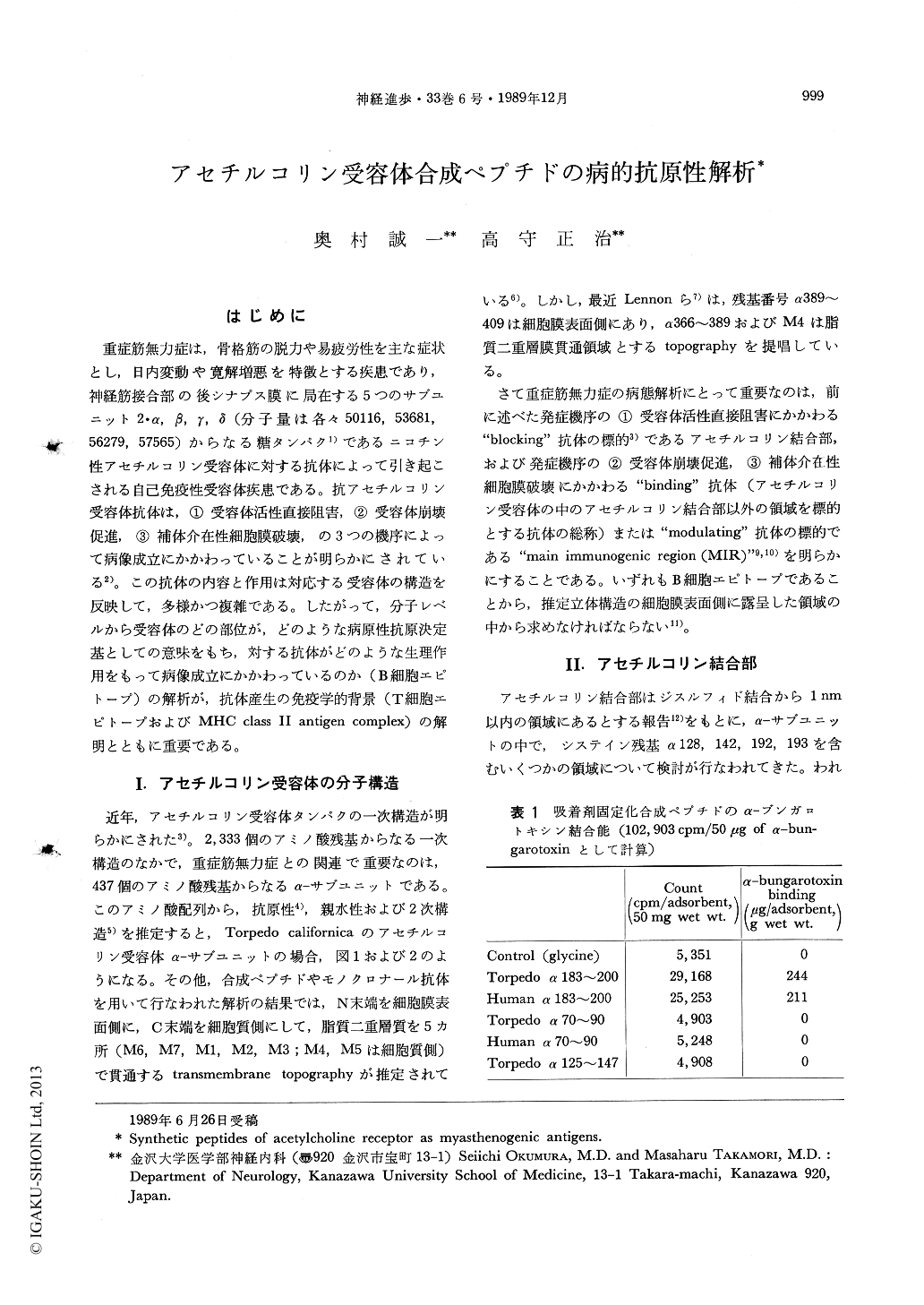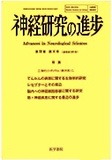Japanese
English
- 有料閲覧
- Abstract 文献概要
- 1ページ目 Look Inside
はじめに
重症筋無力症は,骨格筋の脱力や易疲労性を主な症状とし,日内変動や寛解増悪を特徴とする疾患であり,神経筋接合部の後シナプス膜に局在する5つのサブユニット2・α,β,γ,δ(分子量は各々50116,53681,56279,57565)からなる糖タンパク1)であるニコチン性アセチルコリン受容体に対する抗体によって引き起こされる自己免疫性受容体疾患である。抗アセチルコリン受容体抗体は,①受容体活性直接阻害,②受容体崩壊促進,③補体介在性細胞膜破壊,の3つの機序によって病像成立にかかわっていることが明らかにされている2)。この抗体の内容と作用は対応する受容体の構造を反映して,多様かつ複雑である。したがって,分子レベルから受容体のどの部位が,どのような病原性抗原決定基としての意味をもち,対する抗体がどのような生理作用をもって病像成立にかかわっているのか(B細胞エピトープ)の解析が,抗体産生の免疫学的背景(T細胞エピトープおよびMHC class II antigen complex)の解明とともに重要である。
Myasthenia gravis (MG) is an autoimmune disease in which antibodies are produced that bind to acetylcholine receptors (AChR) in the postsynaptic membrane at the neuromuscular junction. Production of anti-AChR antibodies by B-cell is T-cell dependent.
Recent advances in our understanding of the pathogenesis of MG are due largely to molecular infor-mation about the primary structure of AChR precursor. Using the peptides of AChR subunit that were synthesized following predictions of the antigenicity, secondary structure and T-cell epitopes, we proved the α 183~200 segment to be the site recognized by "blocking" antibody and had the ACh binding capacity ; The α 70~90 segment was recognized by "modulating" antibody, and the antibody raised against this peptide accelerated the AChR degradation. These peptides induced the EAMG in Lewis rats when injected as antigens, respectively. This result suggests that these two segments are extracellular B cell epitopes as well as T-cell epitopes which are included in the binding site for class II MHC molecules on antigen presenting cells. In fact, in vitro proliferation responses respective peptides were shown in T-cells obtain from EAMG rats, in each peptide include the predicted T-cell site: the former, α 79~82 ; the latter, α 186~189.

Copyright © 1989, Igaku-Shoin Ltd. All rights reserved.


